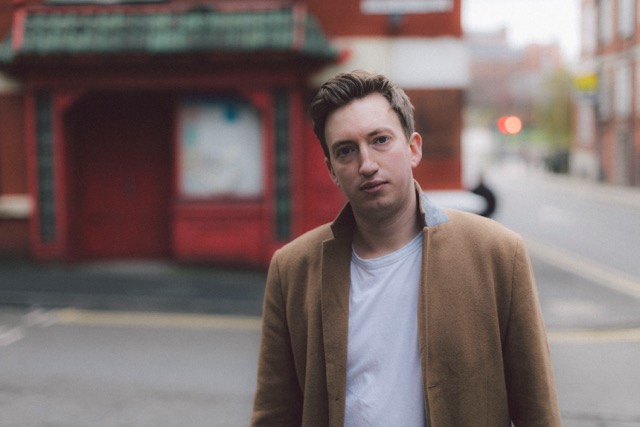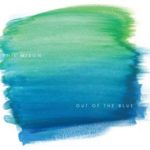Sam Airey recently released his debut album In Darkened Rooms through Hide & Seek Records.
A collection of music written by Sam Airey over a number of years, In Darkened Rooms sees the Welsh songwriter veer from a stark confessional folk sound reminiscent of early Bon Iver and Americana to tender vocals and textured post-rock that recalls Talk Talk. Well produced and thoughtful songwriting, it doesn’t all take off but when it’s good, it is very very good indeed.
To celebrate, Sam Airey has put together a playlist of some of his favourite Welsh music for us below. It is loosely based around the concept of Hiraeth, something he feels ties his record and his music together as a whole.
“Hiraeth” is a Welsh-language word for which there is no direct translation but what the University of Wales likened to “homesickness tinged with grief or sadness over the lost or departed.” Sam Airey combines this notion with his childhood growing up in, and his love for North Wales.
Gwenno – Chwyldro
This whole record is amazing. The theme that runs throughout is the idea of cultural identity and the importance of its preservation. Crucially, the links between minority languages and their respective cultures are explored by Gwenno, both in Welsh and on one track the Cornish language, of which her dad is a native speaker. Musically, there’s a big krautrock influence on most of it, and shades of Stereolab in all the beautiful swirling synths. I love the textures in this particular track – the oscillating delays and the way the backing vocals and synth lines combine and wash over everything. The repeated chorus melody gets lodged in your head for days, along with the lyrics which roughly translate to “Don’t forget, your heart is in the revolution”.
SFA – Gwreiddiau Dwfn
My favourite song from SFA’s ‘Mwng’, the first Welsh-language record to reach the top 20, and the biggest-selling Welsh-language record of all time. It’s just a really pure and brave album, and this song in particular is eight minutes of pure brilliance. Vocally I think it’s one of Gruff’s best performances – the verses leave his voice unusually exposed in quite a rare falsetto – it’s actually astounding how good his voice is. That this record has deeply resonated with so many people who don’t speak the language is a beautiful and remarkable thing.
Cate Le Bon – I Think I Knew
Cate is amazing. This is from her brilliant ‘Mug Museum’ record, and also features vocals from Perfume Genius who I think is incredible too. There’s a great vintage feel to it, what sounds like analogue production and it results in something that feels instantly like a classic song. Cate’s vocals are lush and have this otherworldly thing going on, reminiscent of Nico or Joan Baez but ultimately sounding like nothing else. Her songs are always embellished with lots of weird little things going on – there’s a real sense of playful experimentation. She’s an absolute treasure.
Datblygu – Y Teimlad
Datblygu are an experimental/post-punk band from the 1980s who wrote mainly in Welsh, and were a huge influence on a lot of the successful Welsh bands that followed in the 90s. Lyrically, the songs mostly reflect singer David Edwards’ disillusionment with life in South Wales during the Thatcher era. This is basically a love song, about clinging on to hope during difficult times. More than that, it explores the indescribable nature of love as a feeling – and very much feels linked to the Welsh concept of “Hiraeth” in that way. It is Edwards’ changing thought processes, and his way of trying to make some sense of “the feeling that arrives and sparks hope”.
Yucatan – Uwch Gopa’r Mynydd
Yucatan are a post-rock band from North Wales and create really stunning music. A large part of it is instrumental but there are some vocals in the mix too, mostly in the Welsh language. This is the title track from their latest record and translates to “On the Peak of the Mountain” – this is reflected musically in the huge scenic soundscape of the song – it’s very cinematic. I think Welsh post-rock is quite an interesting thing for non-Welsh speakers, as it doesn’t feel quite as necessary as important to understand the lyrics – if anything I think it probably adds to the feel and mystique of the songs, much like with bands like Sigur Ros.
Georgia Ruth – The Doldrums
Georgia is a friend of mine and deservedly won the Welsh Music Prize a few years back for her debut “Week of Pines”, one that showcases her beautiful harp playing and songwriting. I wanted to share something from her latest record “Fossil Scale” which I think deserves more attention – there’s a conscious effort towards exploring a new sound on the record, and David Wrench’s production is fantastic. The harp takes less of a centre stage here and the instrumentation is really interesting. I love the vocals – Georgia channels some Kate Bush/Joni/60s folk vibes, whilst also sounding completely unique.
Meic Stevens – Left Over Time
Meic is is somewhat of a legend in Wales, often cited as “the Welsh Dylan”, and is best known for writing in the Welsh language but is equally adept in this instance, writing in English. This is from his 2003 album ‘Outlander’ which is the only non-Welsh-language record he released. It has a definite The Band/Dylan feel to it – it just feels instantly nostalgic. He’s a massive influence on a number of generations of Welsh artists. It’s mostly folk but there’s also a psychedelic element to his music that I think has ended up pervading Welsh music culture in general – there’s certainly an association there that subsequently was strengthened by bands like Gorky’s Zygotic Mynci and SFA.




